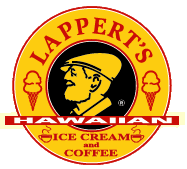The second of two legal cases I started talking about last
week is The Chamberlain Group, Inc., v. Skylink
Technologies, Inc.
Chamberlain manufactures and sells remote controlled
garage door openers (GDOs), including a line that uses what they
term "rolling codes." Rolling code technology is described as
a computer program that constantly changes the signal
sequence that is needed to remotely open the garage door.
This changing of the sequence is marketed as a security
feature since third-parties who record the sequence and try
to replay it, at a later time, to gain unauthorized access to
the garage, would be thwarted by the system using a different
code every time it is used.
Comes now Skylink Technologies and what they call a
universal remote control that bypasses the rolling code
feature and opens the door without using such a code.
Chamberlain filed suit against Skylink under, inter
alia, the DCMA
contending that such bypassing violated the prohibition
because it illegally circumvents a protective measure
(the rolling code) that controls access to its copyrighted
computer program in Chamberlain's Security+ GDOs. Specifically,
Chamberlain claims that Skylink has violated 17 U.S.C.
§ 1201(a)(2) of the DMCA, which states:
(2) No person shall manufacture, import, offer to the
public, provide, or otherwise traffic in any technology,
product, service, device, component, or part thereof,
that--
(A) is primarily designed or produced for the purpose of
circumventing a technological measure that effectively
controls access to a work protected under this title;
(B) has only limited commercially significant purpose or
use other than to circumvent a technological measure that
effectively controls access to a work protected under this
title; or
(C) is marketed by that person or another acting in concert
with that person with that person's knowledge for use in
circumventing a technological measure that effectively
controls access to a work protected under this title.
Later in the opinion, the court states:
During oral arguments on this motion, Plaintiff
acknowledged that under its interpretation of DMCA, a
garage owner violates the Act if he or she loses the
transmitter that came with its Chamberlain rolling code
GDO, but manages to operate the opener by somehow
circumventing the rolling code. This court agrees with
Defendant that the DMCA does not require such a
conclusion.
Here, the court appears to be trying to make a reasonable
conclusion from an unreasonable law. That is, the law could
not be construed to keep an owner from accessing his or her
own garage. Even though, that is exactly what the plain
language of the DCMA would require if it were to be enforced.
While this certainly gives comfort to the defendant, it
leaves intact the law itself. See the ruling, in PDF format
here.
Living Large. Warren Zevon is not what
one would describe as a role model. Unless you were looking
for a rock and roll singer/composer from the Me Generation of
the 1970s and 80s.
In a time of excess, Zevon and fellow traveler/author
Hunter S. Thompson crossed the boundary of the known and
struck out on their own brand of horror - one based on doing
all the things your parents told you not to do.
In the end, such living caught up with Zevon, as it will
for all of us. Warren Zevon, dead at the age of 56.
I saw a werewolf drinking a pina colada at Trader
Vic's
His hair was perfect
Werewolves of London
Draw blood.
Fading Memories. Photographs document the
times of our lives. But nothing lasts forever, as the images
and our memories fade. And one day recently, SWMBO noticed
that we had pictures of her late dad on the bookcase but none
of mine.
Part of that is because my father passed away over 30
years ago and part of that is I didn't take any pictures with
me when I moved out of my mother's house. So I went to see
what I could find. What I found were a few images in faded
color and few more in black and white.
Not wanting to display pictures in such bad shape, I
decided to check out what was available as far as programs
designed to restore and retouch images. For anyone on a
budget, the choices narrowed down to Adobe
Photoshop Elements and Jasc Photo Paint
Shop 8. Both list for about $100 USD and both are
designed for the non-artist who needs to do simple, and not
so simple image manipulation.
Either will probably do what most people need to do but I
chose Jasc because of political reasons more than anything
else. Don't get me wrong, Adobe makes useful software, but I
don't like some of their business tactics and so went with Jasc.
As it so happened, Doc Searl's mother passed away recently
and Doc created a memorial in photographs (see it here). Some of the
images, however, had faded or were scanned in such a way as
to reduce the contrast and color saturation. So I decided to
use Paint Shop Pro 8 on what looked like the most worn out images
as a test. Before you click on the following link, be aware
that you need a broadband connection because some of the
images are large and will take a long time to download. The
results can be seen here.
Most of the improvements you see are a credit to Paint
Shop Pro and not any skill I may have. All I did on most of the
images was tweak things a little here and there. However, two
of the four did require a fair amount of manual work (see
"1980" and "mom_flapper").
I think Paint Shop Pro does a great job of restoring the
original contrast and color tones and is well worth the cost
if you need to restore old photographs.
Aloha!
 The evening news last
night was a twitter with the Aquada amphibious car (see the story
The evening news last
night was a twitter with the Aquada amphibious car (see the story
 The ice cream is in the refrigerator, but there
is no joy in Hanapepe as word of the demise of Walter Lappert
spread.
The ice cream is in the refrigerator, but there
is no joy in Hanapepe as word of the demise of Walter Lappert
spread. 

